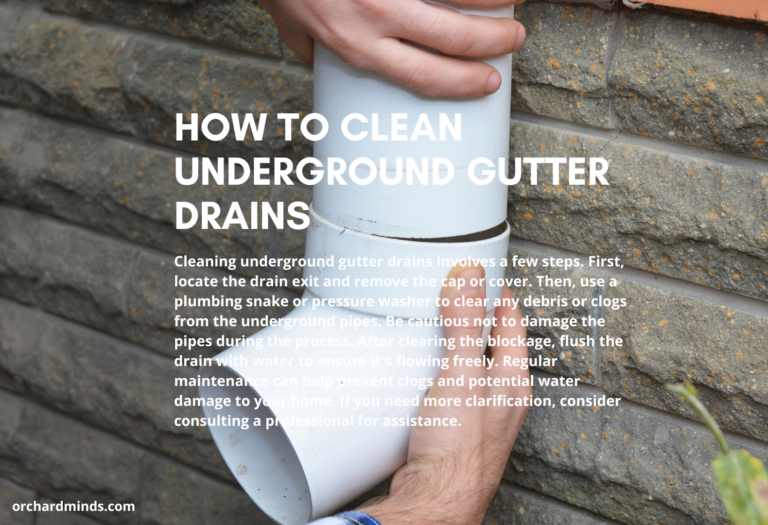Gutter guards can work to a certain degree during heavy rain. They are designed not to allow any type of debris, including leaves, twigs, and other junk, to block your gutters and cause water to overflow from your gutters onto your home. However, with really hard rain, the capacity of even guarded gutters might be overwhelmed, and some water might spill over the edges.
Importantly, one has to select the right kind of gutter guard and make sure that it is properly installed so that one can obtain maximum effectiveness out of it, given that it receives heavy rainfall quite frequently.
Can Gutter Guards Cause A Problem? Do They Work In A Downpour
Listed below are several of the benefits associated with gutter guards: a reduced frequency of cleaning the gutters and avoiding debris accumulation. However, here are some probable drawbacks:
Cost: The fact that gutter guards are relatively costly to install, compared to the standard gutters, is a put-off for many homeowners.
Maintenance: It is true that they reduce cleaning, but some maintenance is necessary. Dirt may accumulate on top of the guards, requiring periodical cleaning.
Heavy rain effectiveness: Gutter guards are pretty well off such a system in most applications, but in extraordinarily hard downpours, they may turn out wanting by not preventing water from flowing over. Water may spill off the edges and cause problems, especially if your house isn’t ready to handle excess water.
Why Do My Gutters Overflow In Heavy Rain?
Gutters may overflow in heavy rain due to clogs from debris like leaves and twigs, obstructing the flow of water, or because the gutter system is inadequate to handle the volume of rainfall, leading to excess water overflowing the edges. Proper maintenance and appropriately sized gutters can help mitigate these issues.
Clogged Gutters & Gutter Guards
Some of the most common issues with gutters occur in areas heavily populated with trees, whose leaves fill gutters really fast. Gutter guards are designed to keep the very debris out, but some can get through or collect on top of the guards. Because this is the case, further cleaning and maintenance are required for proper function.
Poor Gutter Design
Since gutter adequacy or poor installation may cause them to overflow during major rainfall, appropriate sizing and pitch of gutters with respect to the average rainfall in one’s location are important.
Damaged Gutters
Those with cracks, holes, or sagged areas—damaged gutters—are not able to accord the rainwater a proper way to flow. That calls for periodic examination and on-time repair in case damages occur to restore functionality to gutters.
Damaged Components of a Roof
Elements of the roof itself, such as flashing, shingles, or fascia boards, route rainwater down into the gutters. Damage to these components makes it most possible to let rainwater bypass the gutter system at times and can create further leaks or other problems.
Using Low-Quality Gutter Guards
Not all gutter guards are created equal. The cheap ones will either let a great deal of junk through or break down easily. High-quality gutter guards that offer solutions special to your needs will make quite the difference.
More Tips for Keeping an Effective Gutter Protection System
Owning effective gutter protection will guarantee that your house is safeguarded from everyone’s nightmare—water damage, among many others.
Here are a few of the tips that will further help you maintain your gutter protection system:
Routine Inspections: Periodically inspect your gutters and their guards at least a couple of times a year. The ideal is once in the spring and then again in the fall. Look for damage to the gutters and clogs or debris that is lying around. Spotting small problems early can prevent a small issue from becoming a big one.
Cleaning of Your Gutter Guards: Gutter guards are designed to reduce the amount of debris entering your gutters but are not a maintenance-free option. It is important to occasionally clean the surface of your gutter guards to make sure water flows correctly. This can also be done during the inspection of your gutters.
Trim Trees: If trees are around the home, branches can be trimmed to fall away from the roof and gutters. Many clogs and gutter inefficiency can be avoided by removing the source of falling leaves, twigs, and seeds.
Address Leaks and Damage Promptly: Leaks or any visible damage to gutters, such as cracks and holes, or signs of leaks, need to be responded to quickly. Left unattended, this could snowball into a big problem soon.
Put Up Gutter Guards Properly: Make sure your gutter guards are properly installed. A good installation means they are well-fitted and can prevent any kind of debris from getting into your gutters.
Adjust Pitch if Necessary
Be certain the pitch, better known as the slope, on any gutter is set to properly direct water towards the downspouts. Pitch is the most critical aspect of a gutter pertaining to good water flow. If needed, slope the gutters in the right direction to help improve water flow.
Downspout Maintenance: Make sure your downspouts are clean and properly connected. In other words, they need to be securely connected to the gutters. A bonus point is that the water needs to be taken far away from the house. Not only does this prevent erosion, but it also stops any moisture damage from occurring at the foundation.
Think about Hiring a Gutter Cleaning Service: If you can’t or simply don’t want to clean and maintain them yourself, you could consider hiring a professional gutter and/or guard cleaning service. They have the necessary setup and equipment to do this job to keep your system in good shape.
Upgrade When Necessary: If the current plan of gutters protection is not serving you right or allowing your water to be clog- and overflow-free, consider changing it to a new, stronger model to meet the weather and other demands.
Which Gutter Simple Is Best For Heavy Rain?
For most parts, such as this, the best type of gutter would be a bigger dimension with a higher volume. Common recommendations, hence, would be 6-inch K-style gutters or 7-inch box gutters installed for areas that have high volumes of rainfall. They are not only big for size but have a huge volume, which can hold excess water before overflowing.
Do You Want Your Gutters To Work?
We Can Help! If you want your gutters to work this effectively, maintenance has to be upheld responsibly during installation and fitting of good-quality gutter guards that could prevent clogs. In case you require any intervention, it is only appropriate that you consult with professional installation and maintenance services on your gutters to put them in top condition to handle a heavy downpour without any hitch.
FAQs
- Do gutter guards completely eliminate the need for gutter maintenance? No, gutter guards reduce the frequency of cleaning, but they may still require periodic maintenance, especially in areas with heavy rainfall, to ensure optimal performance.
- Can gutter guards handle heavy rain without overflowing? Gutter guards can handle most heavy rainfalls effectively by preventing debris clogs. However, during exceptionally heavy downpours, there might still be some overflow, depending on the guard type and system design.
- Are all gutter guards equally effective in heavy rain? No, the effectiveness of gutter guards can vary. Some designs are better suited for heavy rain, while others may perform poorly in such conditions. It’s important to choose gutter guards that match your local climate and rain patterns.
- Do gutter guards prevent all types of debris from entering the gutter? Gutter guards are designed to block leaves, twigs, and larger debris. Smaller particles like silt or granules from shingles may still enter the gutter but are less likely to cause clogs.
- Can I install gutter guards on existing gutters? Yes, in many cases, you can install gutter guards on existing gutters. However, it’s important to ensure that the guards are compatible with your gutter system and are properly installed.
- Are there different types of gutter guards available? Yes, there are various types of gutter guards, including mesh screens, reverse curve, foam inserts, and brush guards, each with its own advantages and disadvantages. The choice depends on your specific needs and preferences.
- How often should I inspect and clean gutter guards? Regular inspections are recommended at least once or twice a year, and cleaning may be needed if you notice any debris buildup or reduced water flow.
- Can gutter guards extend the lifespan of my gutters? Gutter guards can help prevent clogs and reduce the risk of gutter-related damage, potentially extending the life of your gutter system.
- What should I consider when choosing gutter guards for heavy rain? When selecting gutter guards for heavy rain, factors to consider include guard design, gutter size, local climate conditions, and installation quality. It’s advisable to consult with a professional for guidance.
- Do gutter guards provide any other benefits besides preventing clogs in heavy rain? Yes, besides preventing clogs, gutter guards can also help reduce the risk of ice dams in colder climates, enhance the aesthetic appeal of your home, and reduce the attraction of pests to your gutters.




Leave a Comment